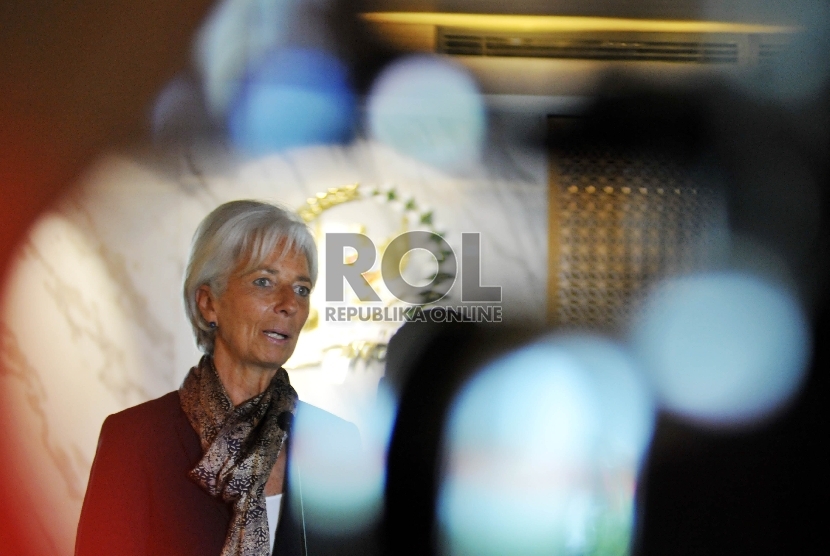REPUBLIKA.CO.ID, JAKARTA -- Managing Director of the International Monetary Fund (IMF), Christine Lagarde, said that the dynamics of today's global economy can be opportunities for Indonesia. It can be a momentum to update the source of economic growth in order to create higher targets in the future.
According to Lagarde, with large potential of human resources, Indonesia has unique opportunities that is different than other countries in overcoming the current global economic slowdown.
"This is a momentum for Indonesia to accelerate the economic reform by developing new sources of economic growth and create jobs for young people," Lagarde said, when giving a public lecture at Indonesia University, Jakarta, Tuesday (1/9).
In contrast to other countries in the ASEAN, the number of Indonesian productive age population will continue to increase. In 2030, an estimated 70 percent of Indonesia's total population, or about 180 million people are in the productive age.
Lagarde said, there are three important steps that must be done to realize this opportunity. First, the development of modern and efficient infrastructure, especially electricity and transportation.
Lack of adequate infrastructure makes other sectors inefficient, such as logistics costs were estimated at 24 percent of GDP compared with 13 percent of GDP in Malaysia. Access to electricity for Indonesian people were only 80 percent compared to 100 percent in other countries.
"Reducing logistics costs and increase access to electricity for the people will create jobs in all sectors, reducing the local price, and improving the connectivity to the global market," said Lagarde.
The government has prioritized it with a spending plan for infrastructure which is estimated to increase by eight percent per year, and is expected it to be realized.
The second step is improving the investment climate that is conducive to the absorption of new technologies and improving capacity to compete in producing many goods and services just like other countries, such as China, Korea, and Japan.
Lagarde gave an appreciation of the steps that were already taken by the government in order to improve the investment climate, such as the settlement problem for infrastructure and integrated one-stop service.
Lastly, Lagarde insisted that the steps should be accompanied by international trade policies that support the process of Indonesia economic integration with the world.
The opportunities were not only in domestic market, but also in global market, with 1.5 billion consumers. International trade has helped Indonesia economic growth in the past and it will remain important in the future.
"With a good policy, openness to investment and trade, and supporting infrastructure, Indonesia is able to build competitiveness and to get benefit from Indonesia's economic integration with global economy, also through the ASEAN Economic Community," Lagarde explained.


